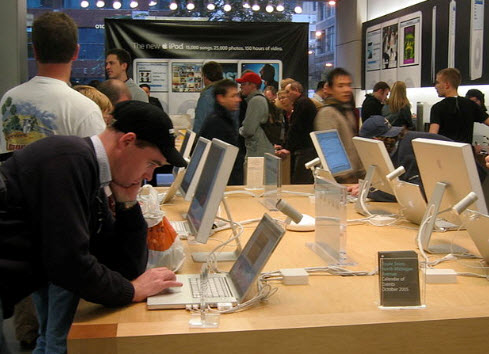 Apple awarded patent for new technology
Apple awarded patent for new technology
Apple may have caught a lot of flak for not including NFC technology in the iPhone 5, but the company’s decision to forgo the technology does not mean it is not interested in NFC. The next iteration of the iPhone may be equipped with NFC technology, or a nearly identical technology that is developed by Apple itself. This is according to a new patent that has been awarded to Apple by the U.S. Patent and Trademark Office.
Company receives harsh criticism for decision to avoid NFC technology
NFC technology is all the rage in the mobile world right now because of its capabilities in commerce and data exchange. Samsung has made headlines with its NFC-enabled Galaxy S III and Apple fans were hoping that the new iPhone would be able to compete on the same level as Samsung’s latest device. Apple fans were disappointed, however, when the company announced that the iPhone 5 would not be equipped with NFC technology. This led to harsh criticisms, but Apple is not abandoning the technology entirely like many have speculated.
Patent highlights technology very similar to NFC
According to the new patent, Apple is currently developing a device that makes use of a proximity technology, either NFC or one developed by the company itself. If the patent is not in reference to NFC technology, Apple will be developing something very similar that is capable of facilitating wireless data transfers between mobile devices. Speculation suggests that this technology would be included in the next version of the iPhone.
New technology may be suitable for Apple’s interests in mobile commerce
Apple chose to sidestep NFC technology due to concerns regarding security. The technology itself does not boast of any stellar security features, leading Apple to believe that its use in mobile commerce and data exchange is too ambitious. If Apple decides to develop its own technology, it will likely feature a variety of security measures that will make its use in mobile commerce more viable and appealing to consumers worries about the protection of their financial information.

